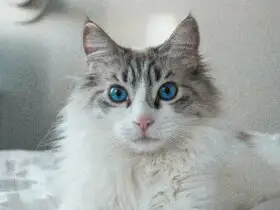
Contents
Cat’s Tail Fell Off – Introduction

If your cat’s tail fell off off, it is important to understand the potential causes and seek veterinary care immediately. A cat’s tail serves many purposes, including balance, communication, and even as a weapon for defense. Losing a tail can greatly impact a cat’s quality of life and overall health.
What do I do if my cats tail fell off?: https://m.youtube.com/watch?v=rcZsekLAh-8&pp=ygUTQ2F0J3MgVGFpbCBGZWxsIE9mZg%3D%3D
Some potential reasons for a cat’s tail falling off include the following:
1. Trauma or injury: A cat’s tail may fall off due to a severe injury, such as getting caught in a door or attacked by another animal.
2. Medical conditions: Certain conditions, such as cancer, infections, or nerve damage, can cause a cat’s tail to fall off.
3. Genetics: Some cat breeds, such as Manx cats, are known for having shorter or no tails due to a genetic mutation.
Regardless of the reason, it is crucial to seek veterinary care immediately. Your veterinarian will be able to determine the cause of the tail loss and provide appropriate treatment. They may also recommend changes to your cat’s environment or lifestyle to help them adapt to life without a tail.
Cats are known to be quite agile and nimble creatures, often landing on their feet even after a fall. However, there are times when things can go wrong, and they may suffer from injuries. One such injury that can occur is the loss of their tail. A cat’s tail plays a vital role in helping them with its balance and communication, so it is essential to know why a cat’s tail falls off.
Trauma or injury
As mentioned earlier, one of the most common reasons for a cat’s tail falling off is due to severe trauma or injury. This can happen when a cat gets its tail caught in a door or window or another animal attacks them. Injuries like these can cause the tail to become detached from the rest of the body.
Medical conditions
It’s essential to note that certain medical conditions can also lead to a cat’s tail falling off. Infections, cancerous growths, and nerve damage are some illnesses that can cause this issue. When your cat is affected by one of these conditions, it can cause its tail to become weakened and eventually fall off.
Genetics
Another potential reason why cats may lose their tails is due to genetics. Some breeds of cats, such as Manx cats, are known for having shorter or no tails due to a genetic mutation. In these cases, it is not an injury or illness that caused the tail loss but rather something passed down from generation to generation.
What should you do if your cat loses its tail?
Regardless of what has caused your cat’s tail to fall off, you must seek veterinary care immediately. Your vet will be able to determine the cause of the issue and provide appropriate treatment if necessary. They will also be able to help you change your cat’s environment or lifestyle so that they can adapt easily without their tail.

Conclusion
Cats are such lovable creatures that bring us so much joy and companionship. However, they are still vulnerable to injuries and illnesses impacting their quality of life. Losing their tail can be a traumatic experience for them, but with proper care and treatment, they can still thrive and adapt to life without one. So, if your cat’s tail has fallen off, seek veterinary care immediately. Remember, your cat’s health and well-being should always be top priorities!
In the meantime, monitoring your cat’s behavior and making them as comfortable as possible is important. Avoid touching the affected area, and keep your cat calm and still. Offer them plenty of love and attention to help ease their stress and anxiety.
Remember, a cat’s tail is a vital part of its body, and losing it can have significant consequences. If your cat’s tail falls off, seek veterinary care immediately. Your cat can still lead a happy and healthy life with proper treatment and care.
More Links:
Maxwell Cat Breed – Everything You Need to Know
Cats Are Retarded? Best Explanation about Your Cat’s Behavior in ’23!









Leave a Reply